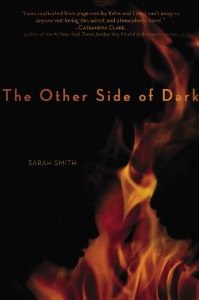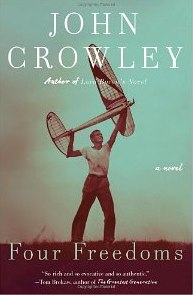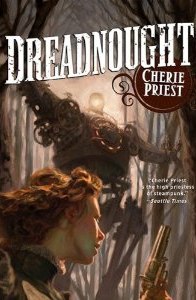You can see where yesterday’s attempted assassination is leading. Sporadic right-wing violence. Then, more violence – perhaps plausibly blamed on both sides, like Haymarket was, like the Freedom Riders were. Blood in the streets. And then, it gets bad. Here’s what happens:
It’s the future. There's a girl. She’s 17. She’s run away from her Idaho home because she has arranged for an illegal abortion.
The police are on her trail. Like many states, Idaho has enacted strict laws against capital abortion and illegal contraception.
She’s made her way, through a network of secret sympathizers, to the home of a Berkley computer science professor, whose husband is the head of the California AFSC and whose aunt is a popular ex-governor. They reassure her; she's safe now. She’s in California. Calls are placed. Strings are pulled. Neighbors are notified.
(Perhaps the girl is 30 and an underground gynecologist whose cover has been blown. The rest of the story is the same.)
Idaho police issue an arrest warrant. The Alameda County Sheriff sends a reply: “Nuts!” Within hours, for the first time in history, everyone knows who the sheriff of Alameda County is.
Two Idaho patrol officers fly down to SFO. They are surprised to be met by several uniformed San Francisco cops who speed them through TSA inspections, lock their luggage in the truck of their cruiser, and escort the Idaho cops to the Santa Rita Jail where they are held on conspiracy charges. A Federal judge throws that out. Reviving a legal precedent that had been forgotten since 2008, the D.A. rebooks the police officers on suspicion of being enemy combatants.
By now, the case of the babykiller is headline news throughout the country. No one can back down; after generations of compromise, it has come to this. California, with one voice, says, "This girl shall not die!" Idaho says, “Obey the Constitution.”
And then the governor of Idaho, in consultation with the new Republican president, orders a detachment of the Idaho National Guard, led by MP's from Mountain Home AFB, to go to California and ensure that the laws of the United States are carried out. On Interstate 85, the California-Nevada border runs just a few miles north of Floriston. On that stretch of highway, Idaho finds the road blocked by California State Police.
A few minutes later, a hand-held antitank weapon slams into a USAF armored personnel carrier, and it all starts to go to hell.
This is where we’re heading, and Tucson just took us a big step down that road. It starts with isolated political violence, and then organized little riots, and then counter-riots and show trials and John Brown’s body. How can we stop? Pleas for tolerance and goodwill and bipartisanship are nice, but the tea partiers will not be tolerant, and the fundamentalists cannot.
We have been here before. We need another great compromise. And perhaps we can have one.
Let’s make a deal. The left gives up on gun regulation. Any adult can carry any personal weapon they want to carry and can afford. No registration, no onerous restrictions, no special taxation. We draw the line in two places: private individuals cannot possess crew-served weapons or any other weapon system they cannot carry, and private individuals cannot own weapons restricted by treaty – that is, nuclear, chemical, and biological weapons – of whatever size.
The right gives up on sex regulation. Consenting adults can do whatever they like. Medical and pharmaceutical measures to support these activities, including contraception and abortion, will not be restricted by law. No onerous restrictions, no special taxation. We draw the line in two places: legal authorities may regulate sexual activity by minors, but only to protect the interests of individual minors, and we accept a law against incest.
This compromise is possible. The left can give up on gun control; there is much to do, there are other fish to fry, and neither peace nor justice are impossible in the presence of firearms. The right can give up on sex control, on the same terms that an earlier generation gave up on alcohol control: everybody is doing it, and law enforcement had turned out to be the wrong tool for this fight.
(The opposite compromise – we ban guns and abortions – is not possible because many of those who care deeply about abortions care just as deeply about contraception, fornication, and perversion, and there’s no bright line this side of Margaret Atwood. Why guns? Guns are what the left can sacrifice. The right might wish it could undo civil rights, but that’s impossible. The right might wish it could get rid of social security and mandatory health insurance, but my guess is they don’t really want to win these fights.)
This compromise is desirable because it could give us an extra couple of generations to reach a consensus or a reconciliation. US politics would, with sex and guns off the table, look normal. We could campaign again on issues of finance and health care and taxation, and actually mean what we say. We could punish liars in politics because it would no longer be necessary for everyone to lie about sex, or for that matter about how happy they are that they other fellow also has a gun.
It would take Daniel Webster to sell the deal at this point, because the headlines will always be grabbed by the Tucson Terrorists and their ilk. But this is the moment. If we drift much longer, we’re going to have an entire culture of sexual zealots who will stop at nothing to save souls and to whom blood and suffering are the necessary steps toward prophecy; letting them keep their guns will reassure them that Obama will not personally pry them from their fingers. And if the economy goes sour and we get President Palin, the right will figure that they've won on guns and there's no need to compromise anything. And there won’t be, until that APC explodes on Interstate 80.
that a fair number of Ruhlman’s readers cannot abide anything that reminds them of arithmetic.







